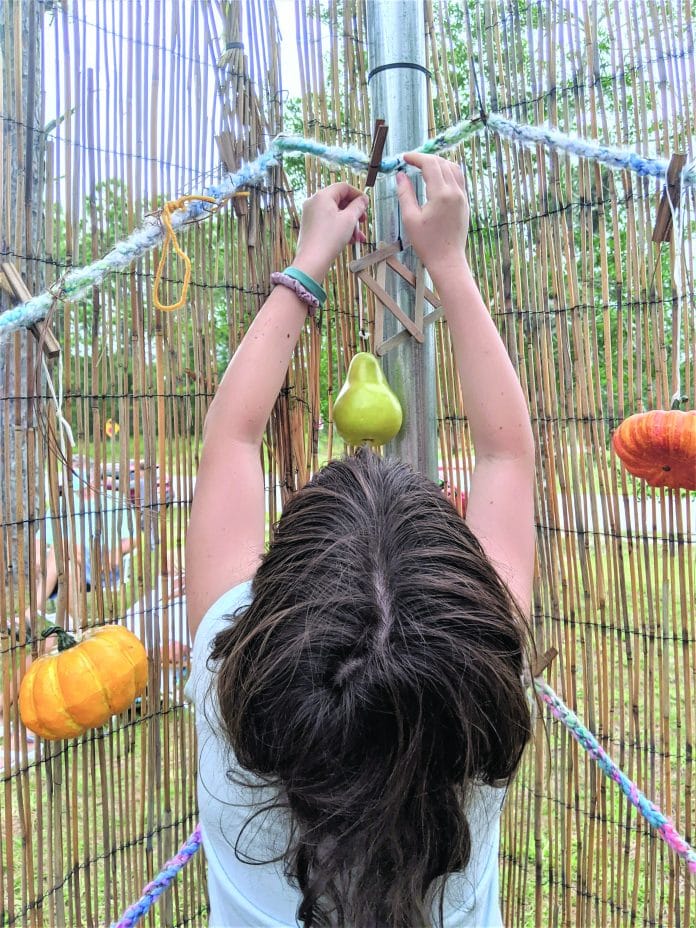SPRING HILL, Fla. — The members of Temple Beth David gathered outside the synagogue on Saturday evening Oct. 3, celebrating Sukkot, a Jewish holiday that spans one week and honors the harvest. It is also symbolic of the Israelites’ time spent wandering in the desert after being freed from slavery in Egypt.
Rabbi Paul Schreiber, aka Reb Tuviah, sang, played the guitar and led the congregation in prayer. He also explained a little about the symbolism of the agrarian holiday. He had a young member of the temple, Sapphire, hold up the lulav (an assembly of palm, myrtle, and willow branches) and the etrog (a citron or yellow citrus fruit). Reb Tuviah explained that the center branch of the lulav (palm)- has a flavor but no fragrance. It represents a person who learns Torah, but does not necessarily do good deeds for others. Then the myrtle has no flavor, but does possess a smell. This represents a person who does not study the Bible, but is a very kind person who goes out of their way to help others. The willow has neither taste nor smell and is equated with someone who does not learn the Bible and does not do kind things for people. Then lastly, the etrog has both taste and smell and is representative of someone who studies the Torah and helps others.
“So now you might be questioning where do I fall, where am I on the spectrum, which one am I?” Said Reb Tuviah. He said that the three species of the lulav are gathered together with the etrog and brought into the sukkah. (The sukkah is a makeshift shelter or temporary dwelling garnished with fruits.) The lulav and the etrog are waived under the sukkah. Rabbi Tuviah further explained, “Signifying that no matter what kind of person you are, we’re all together and we help each other.”
Reb Tuviah told an interesting story about the willow with no flavor and no smell, representing the person who doesn’t learn the Torah and does no kind deeds.
“The willow cried out to G-d one day. He said, ‘Is it because I’m simple and low and I grow up near a stream that I have no value?’ And God answers and says, ‘Though that you are simple, your value is not less important. When I go on a journey in this world, I am riding on the willow as it is written.’
Reb Tuviah explains, that in Psalm 68:5, King David writes ‘Praise him that rides upon the aravot or willow.’
He continued, “Whose name is the Lord and rejoice before him. So G-d is riding on the willows. So don’t feel too bad about that plant that doesn’t have any smell it doesn’t have any flavor because in Psalm 68, G-d is riding on the willows.”
The sukkah is a sort of temporary home built in your backyard or at the temple. Reb Tuviah asked his congregation not to think about who you would invite into your sukkah, but rather who you would not invite.
“That’s the mystery of someone’s life. The idea that if there’s someone who you immediately thought of that you would not invite into your sukkah. The question is could you find a way to do so? What would you have to do in order to make that right so that it can happen?… And then the deeper question is who have you thrown out of your heart? And is there any possibility of them coming back?”

